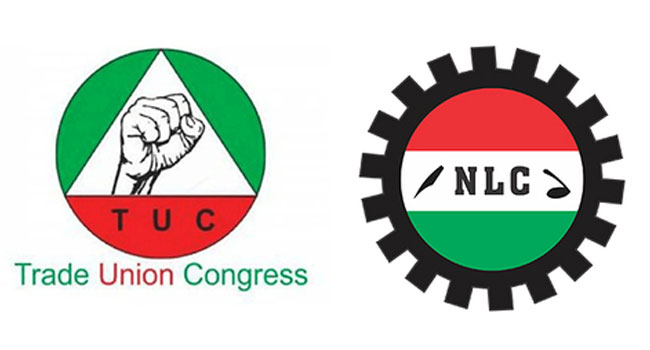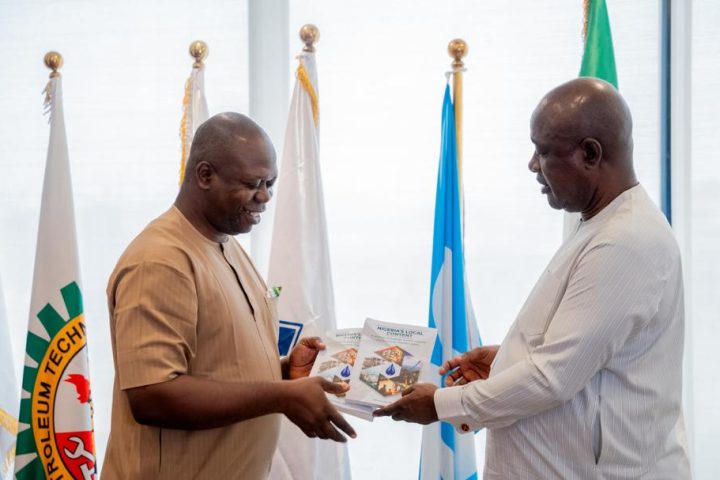A Nigerian Professor of Anatomy based in Delaware, United States, Josephine Emmanuella-Fatolu, has berated the organised Labour in Nigeria for embarking on a nationwide strike at a time when students are writing their West African Senior School Certificate Examination (WASSCE).
According to her, what Nigeria Labour Congress and Trade Union Congress did is a reflection of a failed nation that doesn’t place value on the nation’s education sector because leaders lack ‘qualitative’ education.
Join our WhatsApp ChannelHer criticism was coming at a time when the country’s future leaders are writing their terminal exams at various secondary schools that are expected to prepare them into higher institutions and secure a better future for the nation as a whole.
“It is appalling to see a nation like Nigeria trying its best to ruin the future of millions of its secondary school children in the name of strike,” Professor Emmanuella-Fatolu said in a statement.
The educationist added: “I have no apology to say that Nigeria Labour Congress and Trade Union Congress have both failed as Union leaders to engage in nationwide strike on Monday, June 3, 2024 whilst the secondary school students are writing their West African Senior School Certificate Examination (WASSCE).
“The truth is that organised Labour had suspended their strike before, therefore repeating the same at a time like this won’t be termed as an act of cowardice or integrity deficit or impediment to labour movement policy thrust. The interest of the future of the country must be seen to be prioritised above anything else.
“This is a reflection of a failed state and the action must be condemned in its entirety and this further shows that leaders in Nigeria don’t place value on the nation’s education sector because they (leaders) lack qualitative education, therefore they feel so unperturbed by not placing high premium on it.
READ ALSO: Nationwide Strike: Is Labour Serious This Time?
“It will take nothing away from the union leaders to suspend their strike at a time when these future leaders are writing their terminal examinations that will lay the foundation for them into higher institutions of their choice. Since most of these leaders have no idea of what education actually means, they are always finding it very difficult to actually define the space of education in a nation’s development. If you do not have something it is possible for you not to value it,” she said.
Highlighting the exploits of Nigerians abroad in the academic world, Professor Josephine added that statistics show that many Nigerians abroad “either top their foreign colleagues or they fall within the top five often in any field of study.”
“Nigerians are born with wings to fly. This is why everywhere Nigerians get to in the world to study, they are always among the top five. It is time we start investing in education, especially the teachers and students by providing the learnable environment for our educational system.
“We must commit to investing in the future of the nation through a positive investment in to our education,” she said.
READ ALSO: NLC, 30 Others Join Ongoing Nationwide Strike (Full List)
She also commended WAEC for staying steadfast despite the challenges in the system, whilst also appealing to the government to do something fast about the minimum wage in the country.
The Anatomy Professor commended WAEC, its officials and other stakeholders in the examination value chain across the country for their, commitment in ensuring that secondary school students get a better future in the country despite the challenges in the system.
She appealed to the Federal Government to expeditiously conclude negotiations with the labour unions so that the ongoing examinations will not be disrupted further, “especially in terms of logistics and the integrity of the examination process.”
The educationist noted that the minimum wage that organised labour has proposed seems to be realistic given the current cost of things across the country and urged the Federal government and the organised private sector (OPS), to shift ground on the N60,000 they proposed to achieve “industrial harmony in the country, especially for the sake of the students who are writing their examinations,” she concluded.
Victor Ezeja is a passionate journalist with seven years of experience writing on economy, politics and energy. He holds a Master's degree in Mass Communication.




















Follow Us